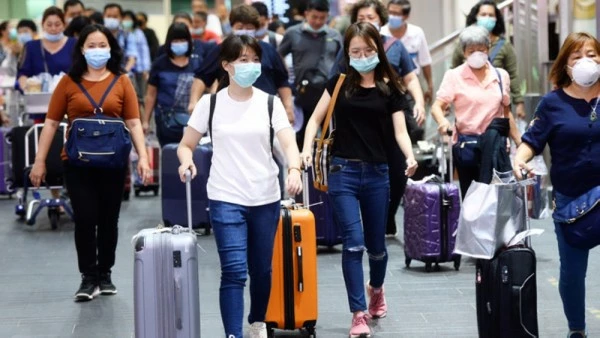
Member Article
How flexibility is an effective response for hotels in the UK during this pandemic
The spread of coronavirus from China, and beyond, has brought the worldwide hospitality industry to a sudden halt. Travel is often one of the first things governments choose to reduce when a crisis hits, and that is why heavy restrictions are being placed on both travelling as well as social interaction.
The COVID-19 pandemic is challenging global economic growth, and the health concerns are impacting all industries and businesses. The fear of the virus has a more significant role than the virus itself, and all of this is hurting the world economy by disrupting trade, supply chain, and travel.
For the tourism industry, coronavirus is turning out to be a bigger crisis than the SARS outbreak, the 9/11 incident, and the 2008 financial crisis.
Impact of COVID 19 on Hotel Performance in United Kingdom ● Occupancy: -50.8% to 36.5% ● ADR: -9% to GBP79.49 ● RevPAR: -55.3% to EUR28.99 The absolute occupancy and RevPAR levels were the lowest for any month in STR’s U.K. database. At the market-level, London’s occupancy fell 60.0% to 32.7%.
If we look at the booking cancellation trends during the last days of the month of January, visitors started cancelling personal as well as professional trips globally. Governments also started cancelling the significant industry exhibitions and events such as ITB Berlin and Geneva Motor Show. In fact, governments like the UK started imposing travel restrictions. According to a study conducted by RateGain (a leader in providing travel and hospitality solutions) the cancellations from January 19th to March 14th, 2020, increased by 41% globally as compared to the cancelled bookings during the same week of the last year.
The overall hotel industry in APAC is witnessing a downfall with reliefs at times. The bookings across the APAC countries have decreased by 9% starting from February 23rd, 2020 to March 14th, 2020. If seen country-wise the study conducted by RateGain reveals that all the nine APAC destinations (including India, Indonesia, Japan, Malaysia, Singapore, Sri Lanka, Thailand, The Philippines, and Vietnam) have posted a decline in reservations from Jan 2020 to March 2020. Japan is the only country that posted a slight increase in booking during the week starting March 8th, 2020.
Although there is much impact, APAC still will be the future of the travel industry. It will still be the most significant source of travellers across the world in the post-COVID 19 era. Many viruses such as SARS have originated in Asia, but the region has emerged as the growth engine for the world economy.
Along with this, various European countries including the United Kingdom witnessed a downward trend. The most impacted of all was Italy; the booking recorded by Italian hotels went down by 40% & 68% from March 1st to March 16th. Tourism contributes 13% to Italy’s overall economy. Over 5.6 million Americans visit Italy every year, thus representing 9% of total foreign tourists. As the US government advises its citizens to refrain from travelling, the impact of hotel bookings in Italy is massive. Venice itself noticed 80% of cancellations in reservations, and the future bookings are also evaporating fast.
This seems like COVID-19 has impacted the hotel industry globally. It is imperative for hoteliers to understand the booking pattern as it directly affects the hotel revenue. This also shows that hotels do not only need to have a strategy to increase the number of bookings but also need a plan for decreasing the amount of cancellations.
One of the effective responses to the crisis requires hotels to be flexible. If need be, hotel owners should modify cancellation policies by allowing modifications on pre-paid rates. Hotels can choose to offer a full refund and/or option to amend the bookings. For instance, some hotels such as Marriott and Accor are offering lucrative cancellations and modification options. At the same time, hoteliers can also update loyalty programs to provide flexibility to plan for future travels.
Moreover, hoteliers today need an efficient travel technology platform such as RateGain, which helps maximize their chances of getting a major chunk of the business available in the market. It is important to focus on all the nearby competitors in the same business segment to understand the state of the market.
Lastly, it is very important to stay calm. Send positive messages to the customers, give them the relevant updates about COVID-19, updating travellers about what strategies as a hotelier you are using to keep your customer safe has become very important in this scenario. In short, staying connected and being flexible are the keys to cope from the COVID-19 and the hoteliers who will keep this in mind will recover fast as compared to others.
This was posted in Bdaily's Members' News section by Erric Ravi .
Enjoy the read? Get Bdaily delivered.
Sign up to receive our popular morning London email for free.




 test article 123456789
test article 123456789
 hmcmh89cg45mh98-cg45hm89-
hmcmh89cg45mh98-cg45hm89-
 test456456456456456456
test456456456456456456
 test123123123123123123
test123123123123123123
 test xxxdiosphfjpodskhfiuodsh
test xxxdiosphfjpodskhfiuodsh
 Savour the flavour: North Tyneside Restaurant Week returns for 2024
Savour the flavour: North Tyneside Restaurant Week returns for 2024
 Six steps to finding the right buyer for your business
Six steps to finding the right buyer for your business
 Stephen signs off on a special night
Stephen signs off on a special night
 Life’s a Peachaus: Gillian Ridley Whittle
Life’s a Peachaus: Gillian Ridley Whittle
 Making a splash: Phil Groom
Making a splash: Phil Groom
 Making workplace wellbeing a priority
Making workplace wellbeing a priority
 A record of delivery, a promise of more: Ben Houchen
A record of delivery, a promise of more: Ben Houchen